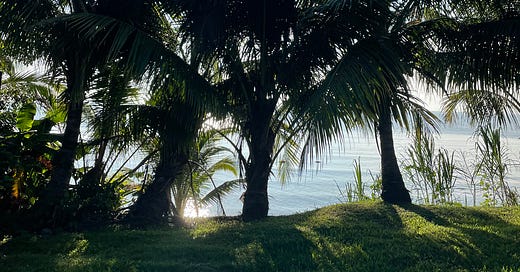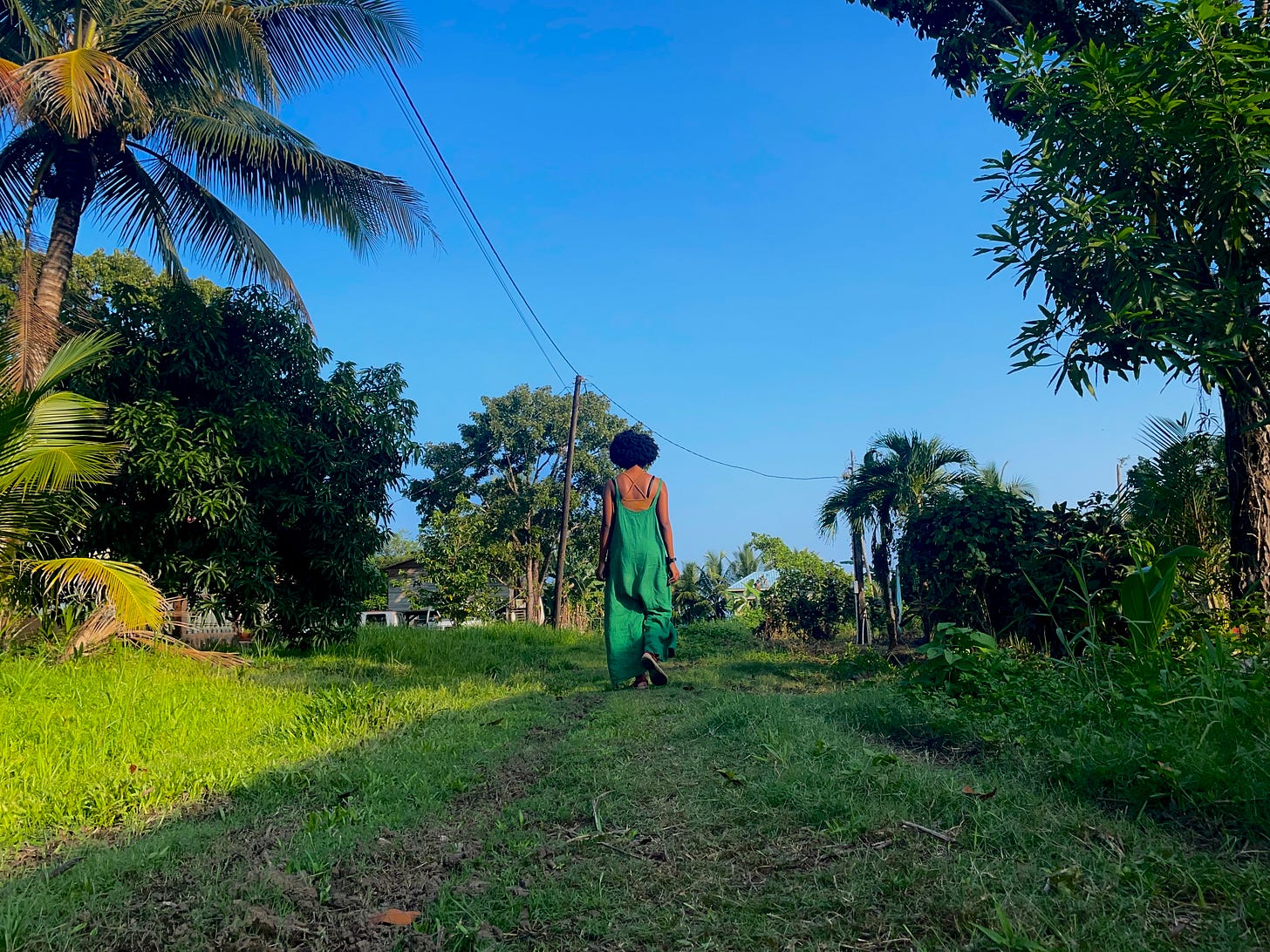I pen these words from my father’s village in the most southern part of Belize. So, this month’s letter is one part cultural exposition, and the other part an exploration of the next song from my collection, ‘Under the Sacred Tree’.
I didn’t spend my early years visiting this village, but I formed a deep kinship with it in my late teens when my father started building what is now our family home here. The population is tiny—probably about 150-200 people—largely comprised of children and the elderly, but swells in size during the Christmas and Easter holidays when working-age people come home. When I got here last week, there were two death ceremonies happening so the village was quite populated (and noisy).
This video captures a snippet of one of the death ceremonies: the final send-off for a dearly departed spiritual leader who died last year. Because I live in the heart of the village, the sound of drumming woke me up at the buttcrack of dawn as the drummers led a procession to the cemetery to complete 9 nights of prayers (‘nine-night’ is done in other Caribbean countries as well). I had never witnessed this ceremony before and it does make me consider resurrecting my podcast1 so that I can interview an elder about the intricacies of the nine-night ceremony in Garifuna culture.
A brief history lesson: For folks unfamiliar with my background, the Garifuna are an afro-indigenous people from the eastern Caribbean, namely St. Vincent & the Grenadines, which relates to why I felt deep kinship with the Kalinago people during my visit to Dominica earlier this year. (I wrote a bit about that in the backstory of my song, So It Is). The Kalinago language is extremely similar to Garifuna, which is unsurprising when one considers that Dominica is only a few islands north of St Vincent in the Eastern Caribbean archipelago—easily navigable via the powerful dories used by the indigenous people of the islands in pre-colonial times.
St. Vincent was the very last Caribbean island to fall to European colonization because the Garifuna, then labeled ‘Black Caribs’, put up a helluva fight against the British forces. After two wars and an attempted genocide at the hands of the British2, the Garifuna were overpowered and subsequently exiled to Honduras in 1797. From there, my people spent the next few decades forming settlements across Nicaragua, Honduras, Guatemala and southern Belize.
In the present day, we celebrate the official arrival of the Garifuna people to Belize on November 19, Garifuna Settlement Day, which is now a national holiday. Like many indigenous groups around the world, the Garifuna have faced social and economic othering since their arrival to Central America in the late 1700s. However, the last 70 or so years have seen a marked increase in integration into Belizean society and now Garifuna Settlement Day has expanded into month-long festivities to mark the occasion. Most of these activities are geared toward cultural preservation due to the fact that the unfortunate consequence of integration is that our culture, particularly the language, is endangered3.
To those who are curious about Caribbean culture beyond carnival, I always recommend visiting southern Belize in November because there are plenty of interesting events leading up to November 19. My found family may be in Trinidad but my anchor will always be southern Belize, especially as long as my nearest and dearest elders are alive. As such, I’ve vowed to return for Garifuna celebrations as long as my resources allow.
My culture is foundational to my identity and spirituality despite only knowing enough Garifuna phrases to eat, pray and sing. It’s been healing to listen to the drums, feel their reverberation in my ribcage, and sing traditional songs in our language. My childhood self delights in speaking Garinglish (Garifuna and English) with my grandmother and Garifañolinglés (Garifuna, Spanish and English) with my grandfather. They are the last native Garifuna speakers in my matrilineage.
If I could put my whole body inside these drums, I would
And yet, it was extremely difficult to leave Trinidad. My cow-like nature loves the routine I’ve finally established in my home and I detest the uprootment. I started missing my friends before I even got on the plane. (Lovingly) Bickering with my partner is not the same over the phone. I truly don’t know how we managed doing long distance for as long as we did. Perhaps it’s my failing memory, perhaps it’s my older age, but getting on the plane this time was extremely painful despite the fact that I know I’ll be back. It’ll be 2 months this time, maybe more if bureaucratic forces exert the full force of their power.













